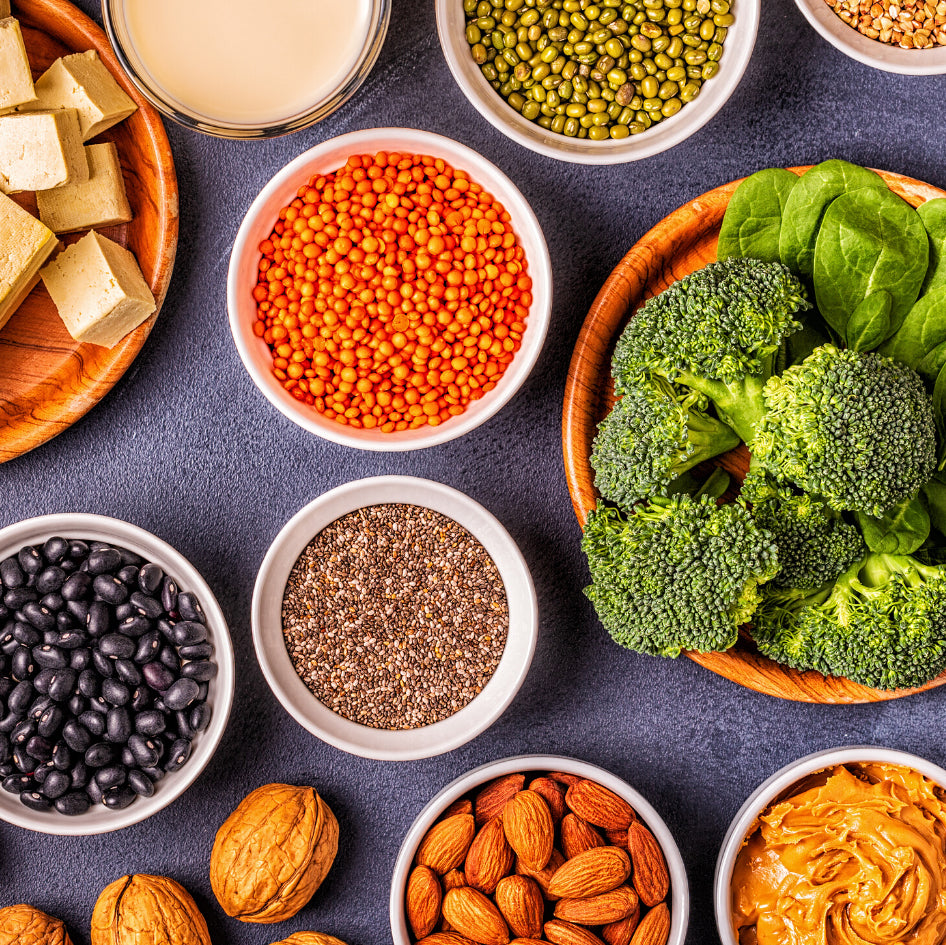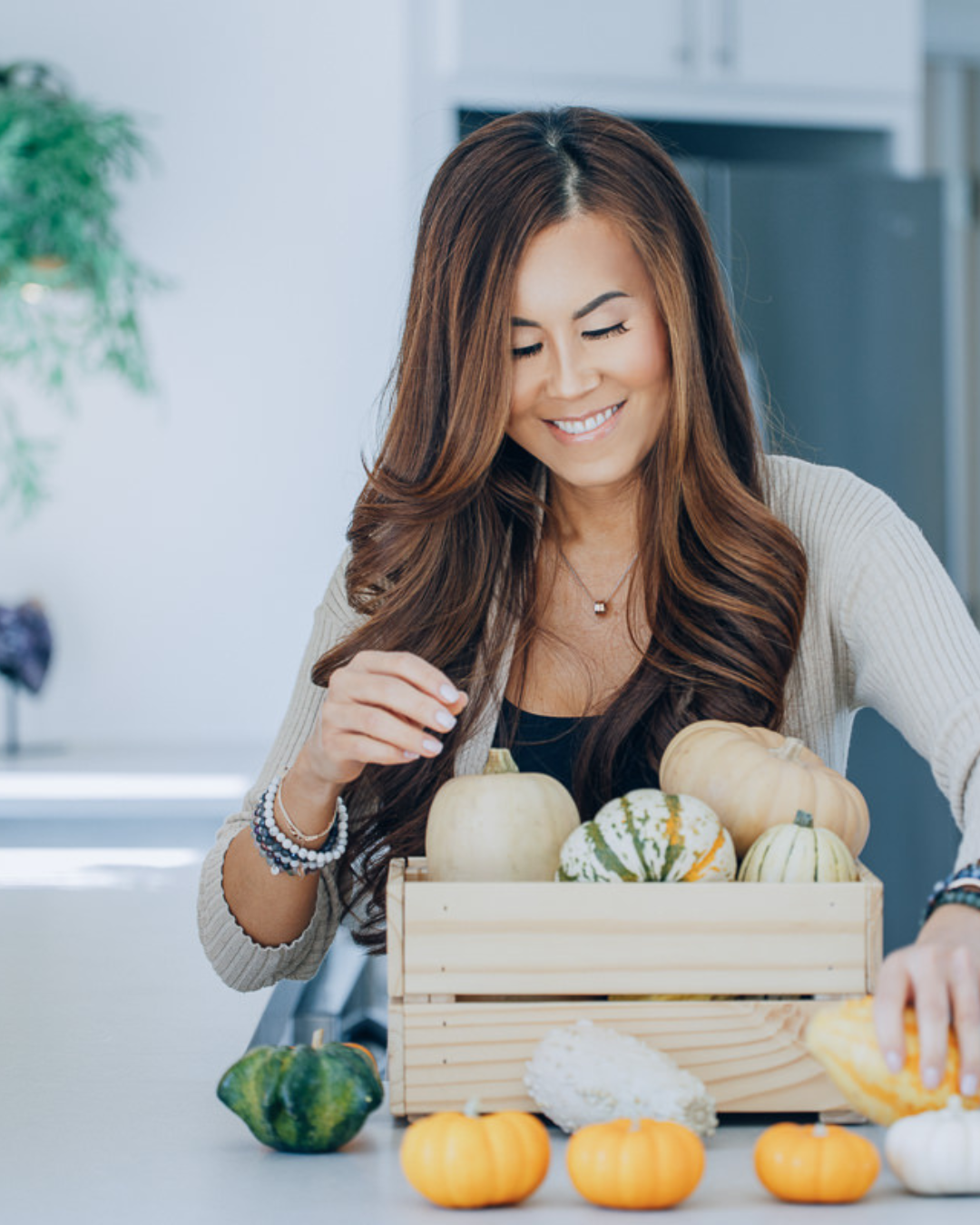I’m proudly plant-based. I think that nature offers us everything we need to survive and thrive in this busy, demanding world, whilst protecting the planet we live on. There are many reasons to become plant-based: your health, animal welfare, the environment, but the most common question I get asked is inevitably “where do you get your protein from?!”
Look no further – here are some of my favorite plant-based sources of protein, and how they compare against animal-derived sources of protein.
Protein’s Vital Role
We need protein to maintain our body’s structure and functions. Proteins are made up of amino acids, which are vital to many of the processes and building blocks that make up our organs and cells. While animal sources of protein can provide us with all the essential amino acids we need; it’s actually entirely possible to get these in a plant-based diet, by combining sources of protein, such as pulses and seeds.
My Go-To Protein Sources
When transitioning to a plant-based diet, It can be a good idea to keep a high quality plant-based protein powder on hand. My favorite is yellow pea powder, which is the staple in my Just Add Water™ blend, but there are plenty of other options for adding to smoothies or juices if you’re looking to increase your protein intake. These pack by far the biggest punch on average when compared to meat or other plant protein sources and are easily found in health food stores or online.
Pulses and legumes, such as chickpeas and lentils, are versatile additions to homemade dishes such as salad, curry, or stir fry. They absorb flavors well and can give a range of textures to suit, depending on how long they are cooked for. Chickpeas can also be roasted in spices, which make a clean, crunchy snack similar to popcorn for when the cravings hit!
If you’re an on-the-go kind of person and like to get your protein in as a snack, pumpkin seeds are great on their own, whether toasted or not, or can be sprinkled into salads to give some crunch. Almonds are delicious between meals or used to give nuttiness to morning oats. Both manage to hold their own against meat and fish options, but it is important to be mindful of how much fat they contain.
Read more about the healthiest seed choices.
Whole food options in the form of green cruciferous vegetables like broccoli tend to give us about as much protein as whole milk, but black beans (which are technically also legumes), pack a respectable 22g per 100g, placing them on par with most fish options.
Finally, let’s talk about pressed plant proteins: tofu, tempeh, and seitan. Though I try to eat mostly raw or whole food, these are so easily prepared off-the-shelf that they deserve a mention. Not only are they versatile and delicious in most types of cuisine, they are normally far less processed than their meatier counterparts. While tofu finishes last in our ranking with only 8g protein per 100g, tempeh is much more generous at 20g per 100g. The hero of the day is seitan, managing to contain almost as much as my favorite yellow pea powder, at 75g per 100g – that’s pretty impressive!
Benefits of Plant-Based Sources
One of the greatest benefits when it comes to plant-based sources of protein is the fiber that comes along with it. We already know quite a bit about the benefits of fiber: it helps with digestion and gut health, it offsets the glycemic spike normally seen after eating, and it helps to protect against colon cancer. A fiber and high protein diet and longevity are closely linked, as these nutrients support sustained health and vitality over time. However, a recent paper published in the prestigious medical journal, The Lancet, showed that people with higher intakes of fiber in their diet over a forty-year period had fewer chronic health problems commonly linked to lifestyle, such as high blood pressure, diabetes, and high cholesterol.
The truth is, we humans can only absorb approximately 35g of protein per meal, three times per day. This is already far more than most of us would ever need, as the recommendations state that about 56g for men and 46g for women are adequate daily totals for most stages of life. When it comes to plant-based foods, calorie density is lower which means that you can fill up on greens without busting your waistline, staying fuller for longer and feeling great with a healthy balance of nutrients from all-natural sources.
For additional support, consider my supplements Love My Aminos and Taurine Supreme.
XO – Serena
by





